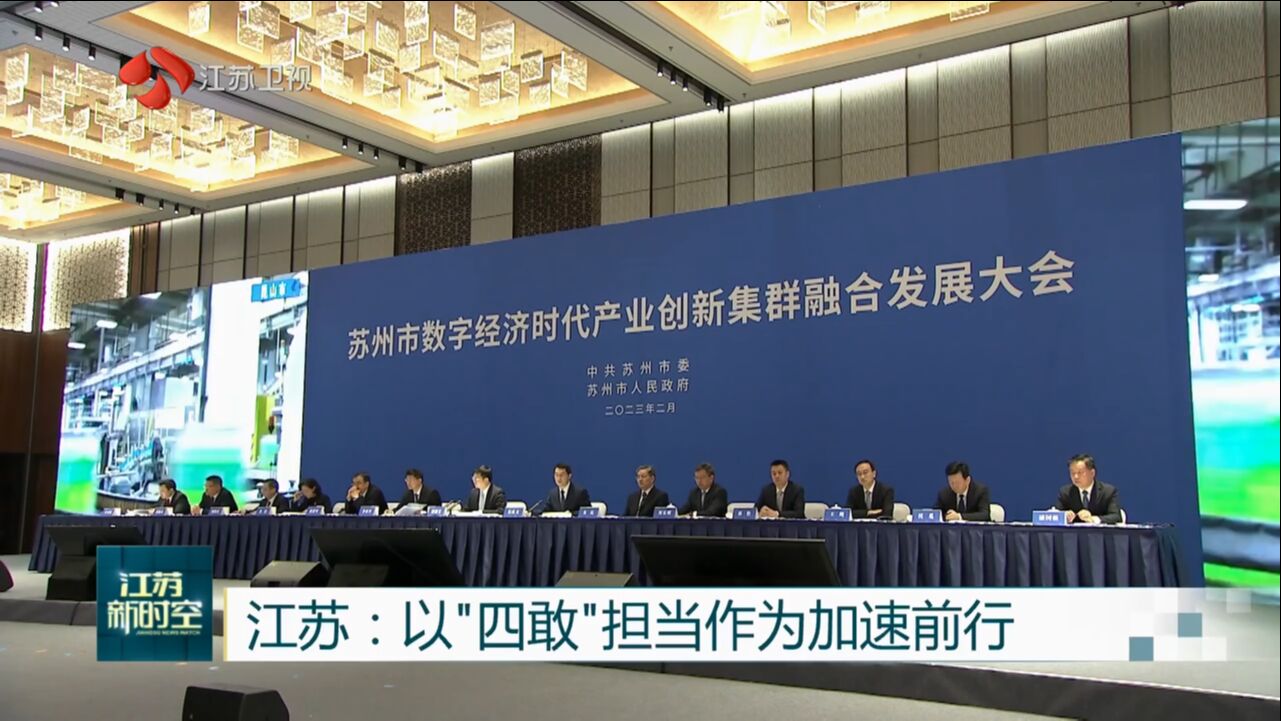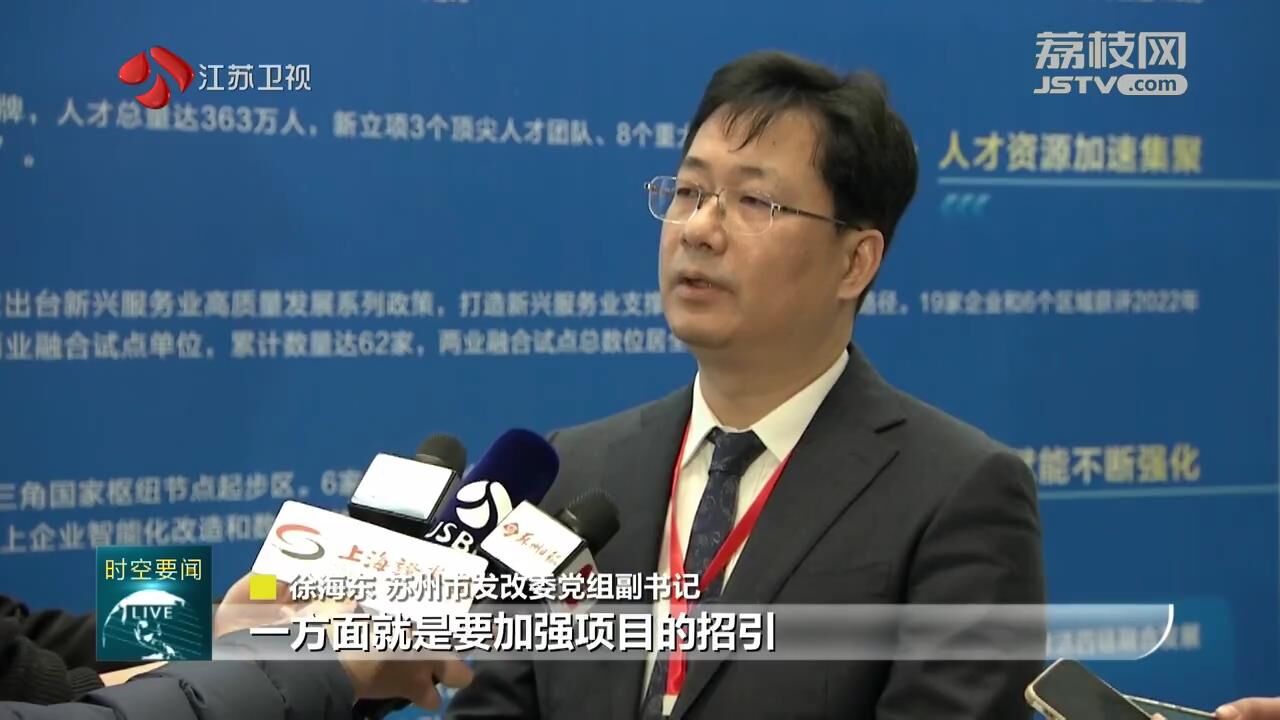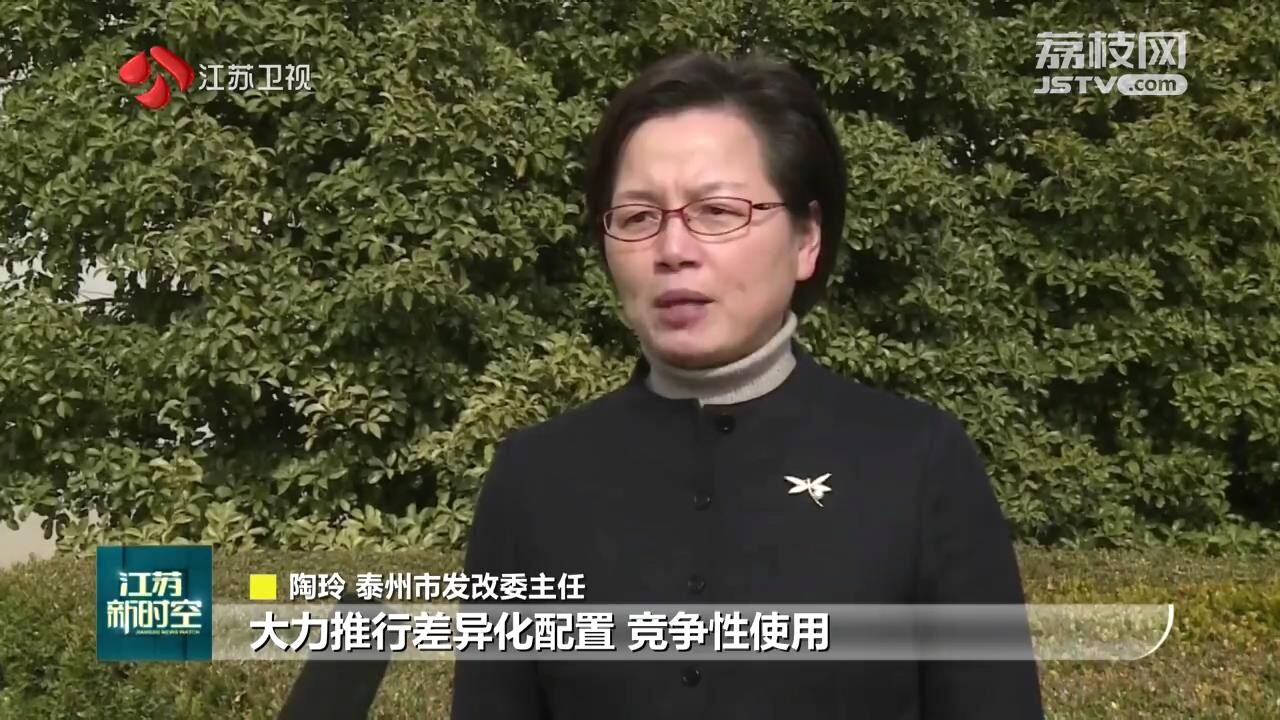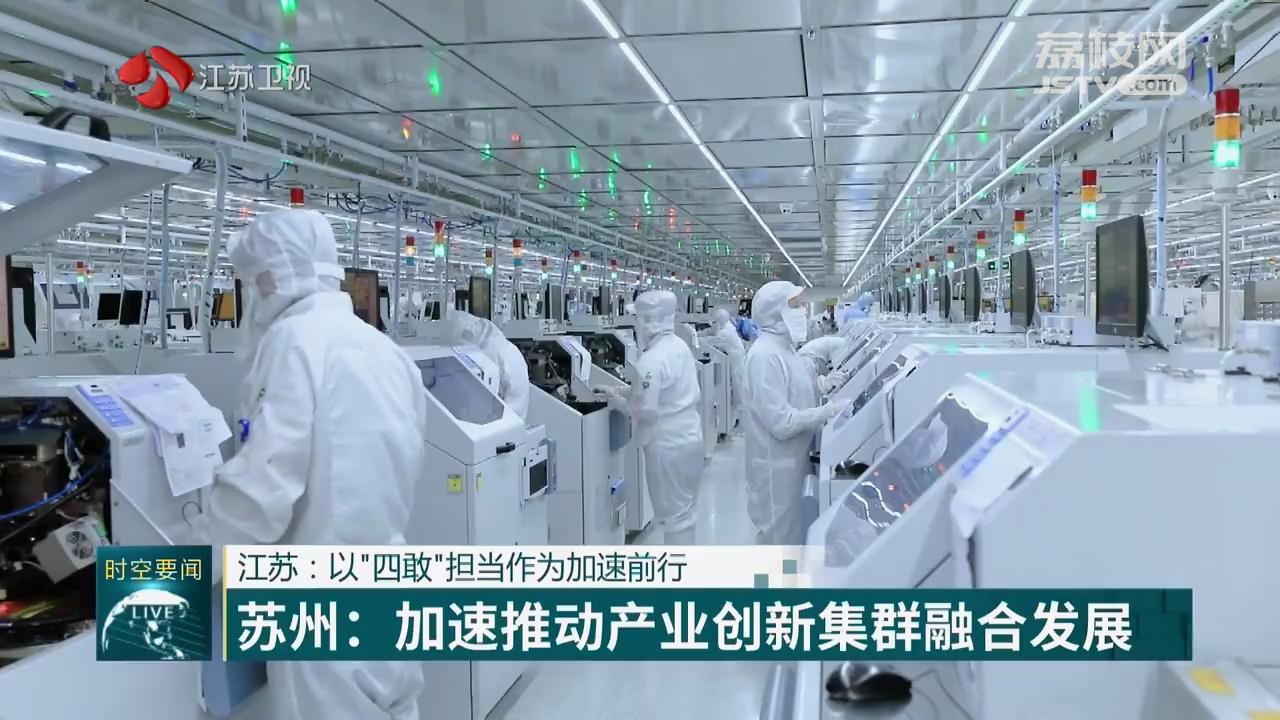East China’s Jiangsu province has made unremitting efforts to spur the deep integration of the digital economy and real economy through a variety of ways. Let’s take a close look.
According to the conference on the integration and development of industrial innovation clusters in the digital economy era held on Monday, Suzhou will promote the deep integration of the digital economy and the real economy, further promote industrial digitization, and fully promote digital industrialization.

At the meeting, Suzhou awarded and unveiled the National Advanced Manufacturing Cluster, the National Enterprise Technology Center, and the National New Generation AI Open Innovation Platform for Language Computing.
In 2022, Suzhou has achieved remarkable results in the construction of industrial innovation clusters with three manufacturing clusters, including bio-pharmaceuticals and high-end medical devices, high-end textiles and nano-new materials, selected as the national advanced manufacturing clusters. The city also increased three national enterprise technology centers, ranking the first in the province.
By 2025, Suzhou will strive to ensure that the added value of the core industry of the digital economy will account for more than 18% of GDP and build more than 10 high-quality characteristic industrial innovation clusters. In the meantime, the city will have continuously optimized the industrial cluster structure of electronic information, equipment manufacturing, bio-pharmaceuticals and advanced materials with the industrial competitiveness and cluster innovation capacity leading in China.

"We will strengthen the recruitment and service of projects, provide tracking services every month, promote some development of major projects in 25 sub-sectors, and further promote the deep integration of the innovation chain, industry chain, capital chain and talent chain," said Xu Haidong, Deputy Secretary of the Party Group of Suzhou Development and Reform Commission.

Taizhou broke ground on Monday to build 79 major health industry projects in its efforts to promote the health industry.

"We will continue to improve the life-cycle management mechanism of major projects, reasonably increase the city-level overall proportion of resource elements, vigorously promote the competitive use of differentiated allocation and fully promote the rapid implementation, rapid commencement, early completion and early results of projects," said Tao Ling, Director of Taizhou Development and Reform Commission.
This year, Taizhou will also plan to reserve 20 major projects of more than 3 billion yuan for characteristic industrial clusters such as the big health industrial system. By 2025, Taizhou is expected to produce 400 billion yuan of big health output value.






